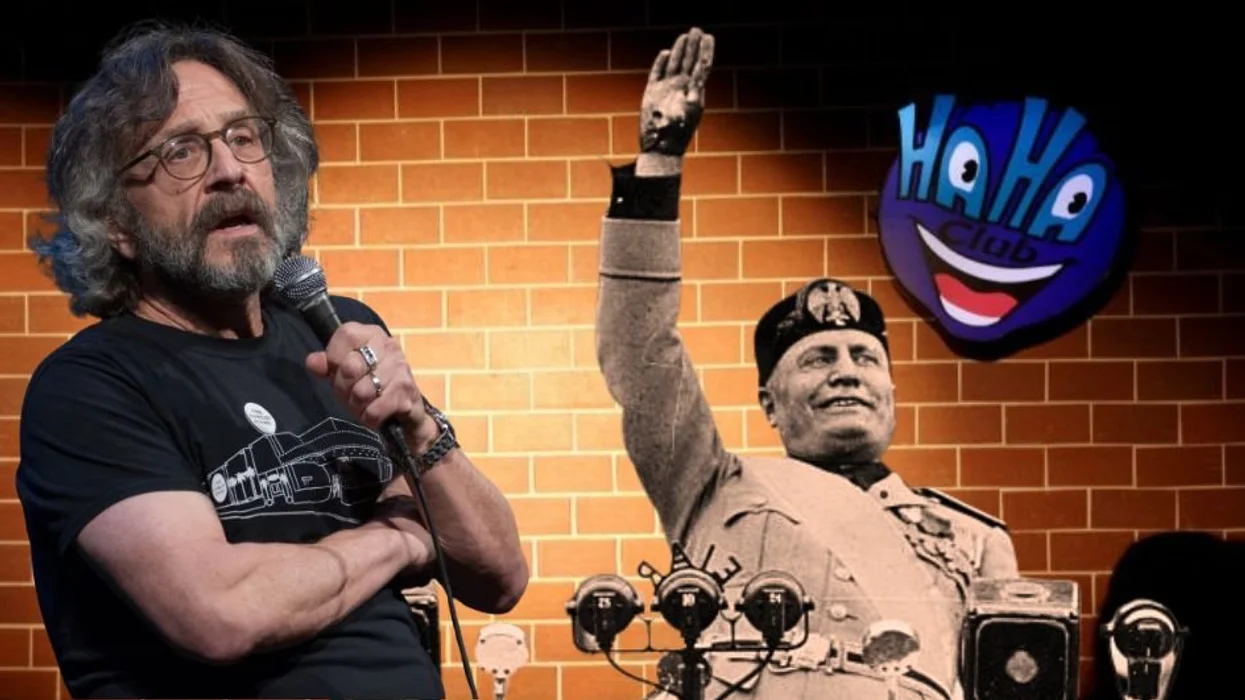
© 2025 Blaze Media LLC. All rights reserved.
Last week, Jews gathered around the world to celebrate our deliverance from Egypt more than three thousand years ago. At conclusion of our Passover Seders, many of us sat back, enjoyed our freedom, and invariably the conversation turned to politics and Israel.
I have partaken in many of these conversations, and regardless of one’s personal views on one issue or another, it seems that each and every one of Israel’s supporters laments our inability to effectively explain ourselves to the world.
But Passover reminds us that Israel’s public relations challenges are not without precedent. Moses, our great prophet, was no great communicator.
In Exodus (4:10) Moses, concerned about his ability to lead the Jews out of Egypt, says “I beseech You, O Lord. I am not a man of words, neither from yesterday nor from the day before yesterday, nor from the time You have spoken to Your servant, for I am heavy of mouth and heavy of tongue.”
There is of course a story explaining the statement: While a child living amongst the Egyptian royal family, Moses one day grabbed Pharaoh’s crown off of his head. This alarmed the monarch, who asked his advisers how to interpret Moses’ action.
Most agreed that this act meant Moses would one day threaten Pharaoh’s reign, but one dissenting adviser suggested that the boy was simply reaching towards an object he found shiny. To test the theory, Pharaoh’s men placed before Moses two bowls, one filled with gold, the other, with hot coals. Though Moses reached for the gold, an angel of God guided Moses’ hand to the hot coals.
This satisfied Pharaoh that Moses was no threat, but the coals burned Moses, and the young boy immediately put his hand in his mouth. As a result, Israel’s prophet stuttered for the rest of his life. Years later when Moses lead the Jewish people out of Egypt, his brother Aaron was his spokesman.
Today, Israel needs her brothers and sisters to follow Aaron’s example.
While we are surviving and thriving as a democratic and Jewish nation, our legitimacy is under constant attack, and like Moses, we often stutter as we try to tell our story.
Israel is not a militarized nation; it is a nation that happens to need a military. Our greatest source of pride comes not from advances in battle, but advances in science and technology. We honor and remember our generals, but we celebrate our thinkers and humanitarians. Yet that is not the portrait of Israel painted by the media.
My organization is dedicated to telling Israel’s story beyond the conflict and beyond the headlines; but we cannot do it alone.
If Israel’s supporters limit their knowledge of the Jewish people to our struggle for survival, how can we expect our detractors to recognize our contributions to humanity?
Yes, the world needs to be reminded of our right to live in our ancestral homeland and defend our families, but it also needs to hear about what we’ve done for the needy, the downtrodden, the sick, and the helpless.
There are countless stories of Israel’s contribution to humanity, but too often Israelis fall short in their effort to elevate those stories above the clamor of daily news about the Arab-Israeli conflict.
But you can change that. Do not just hear to the words of our politicians and warriors, but also listen to the messages of our scientists and humanitarians. Discuss not just our history, but also our innovations and contributions.
Israel’s enduring commitment to our faith in the face adversity is an important lesson. But Israel is not just a land of ancient traditions; it is a nation of modern miracles as well.
Rabbi Joel Landau is the executive director of Israel Up Close. To learn more, please visit www.Israelupclose.org
Want to leave a tip?
We answer to you. Help keep our content free of advertisers and big tech censorship by leaving a tip today.
Want to join the conversation?
Already a subscriber?
more stories
Sign up for the Blaze newsletter
By signing up, you agree to our Privacy Policy and Terms of Use, and agree to receive content that may sometimes include advertisements. You may opt out at any time.
Related Content
© 2025 Blaze Media LLC. All rights reserved.
Get the stories that matter most delivered directly to your inbox.
By signing up, you agree to our Privacy Policy and Terms of Use, and agree to receive content that may sometimes include advertisements. You may opt out at any time.





